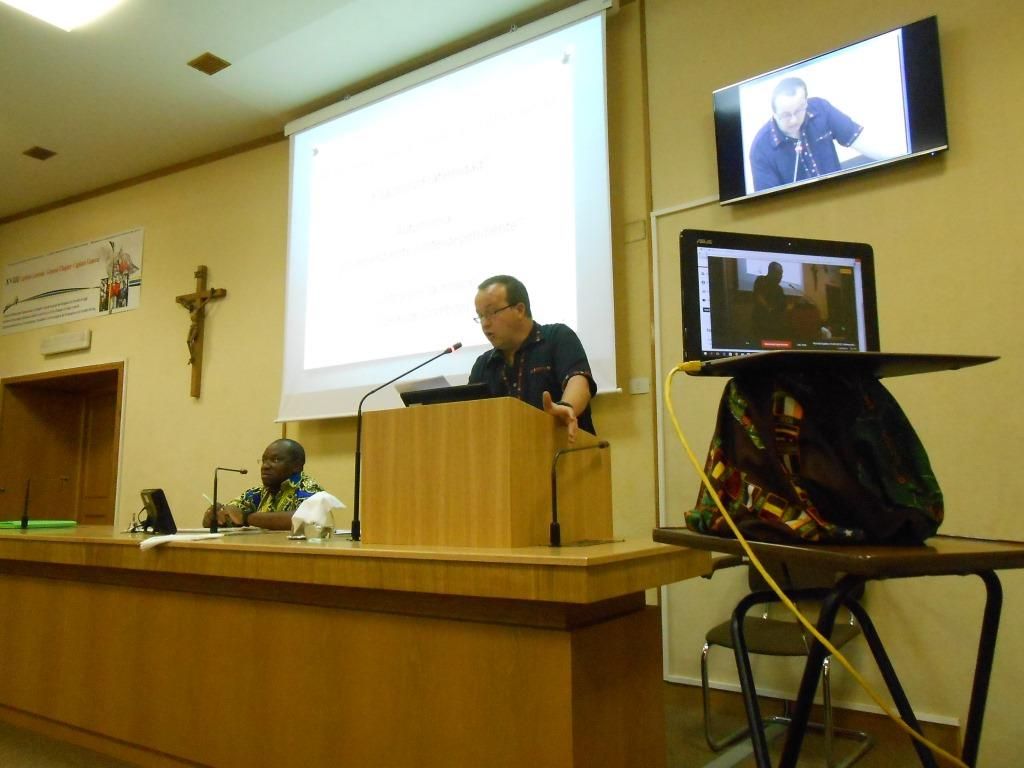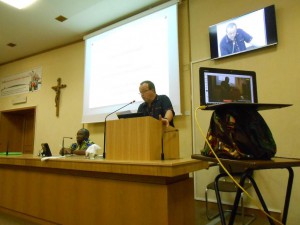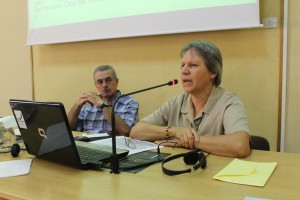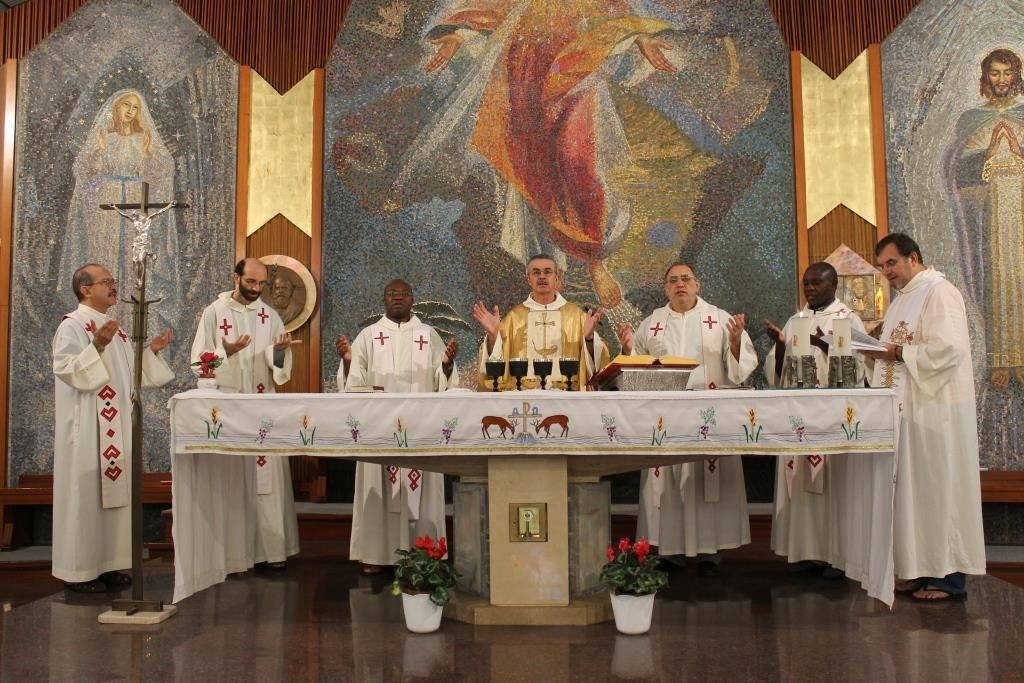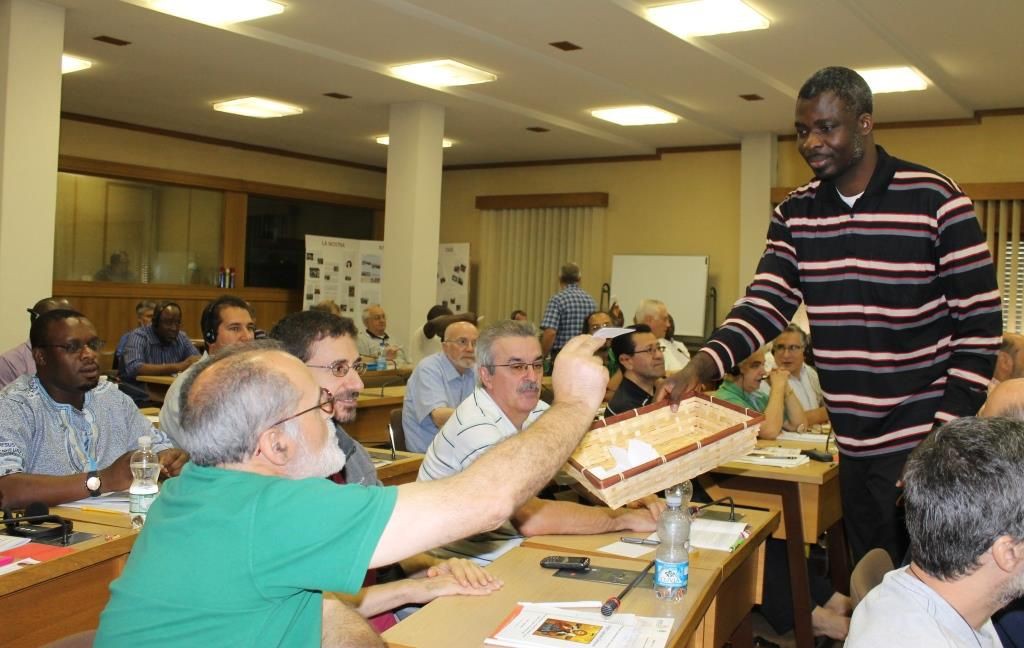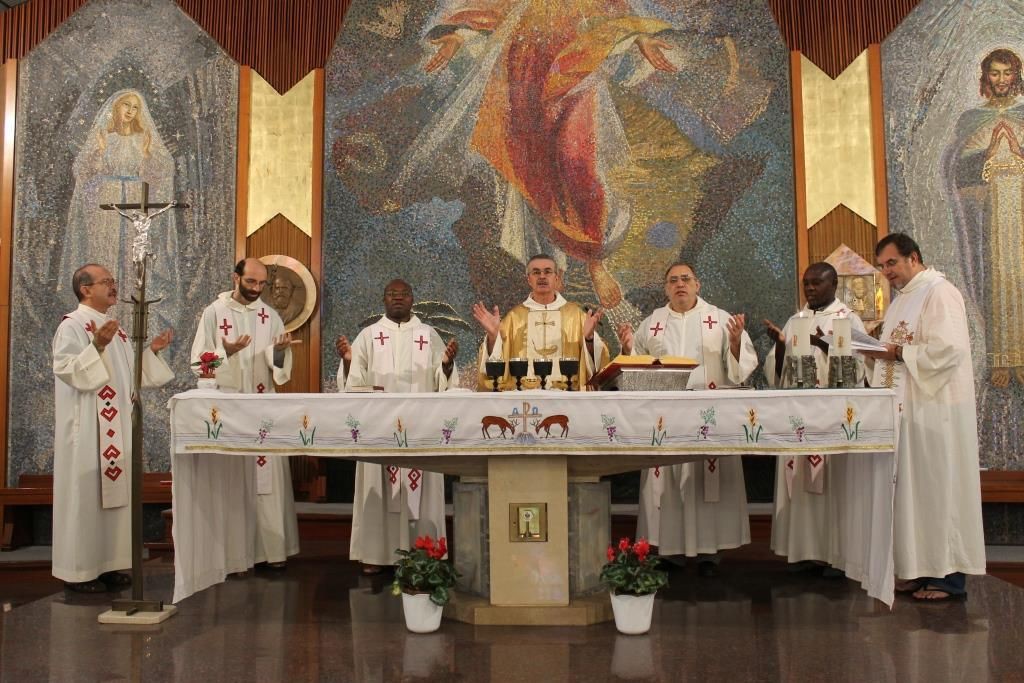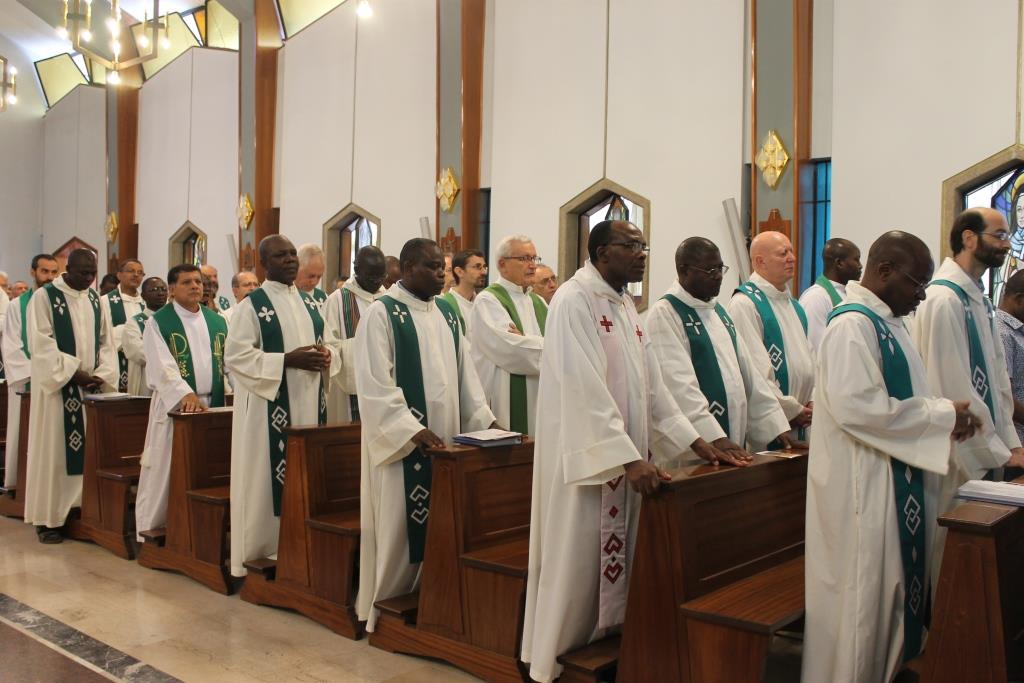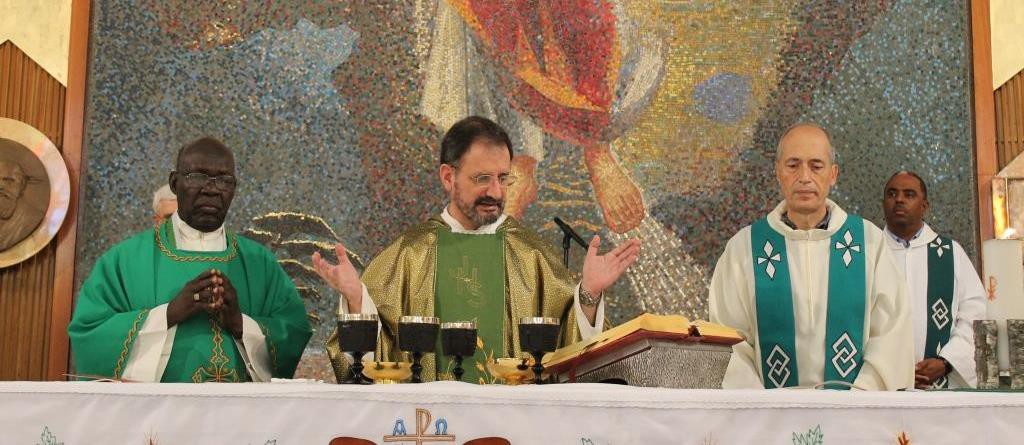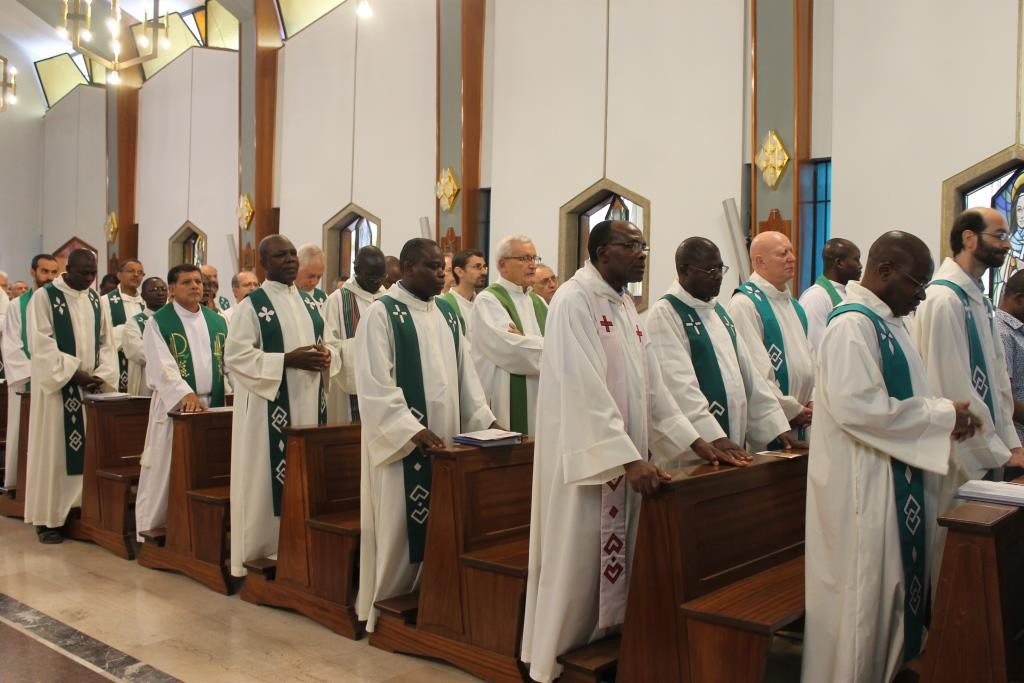A commentary on Mk 7, 31-37 (XXIII Sunday O.T., September 6th 2015)
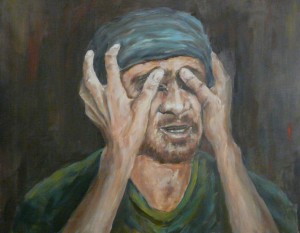
Mark, in today’s reading, portrays Jesus in “pagan” country, where people were not following Jew religion. But, beyond the religious differences between those people and the people of Nazareth or Jerusalem, there it was a concrete, real man with a concrete, human problem, that is the same for believers and unbelievers, rich and poor, educated and illiterates. That man was deaf and could not speak properly, something that affected his human condition at a very fundamental level.
Moreover, it seems clear that what Mark intends with the narration of this experience is to explain to us what the real mission of Jesus is:
Jesus’ mission consists in using the power-love of God (symbolized by the continuous touching with fingers and hands) to liberate humanity, not so much from our physical deafness, but, more important, from our deep inability to understand God and our neigbours, closed up in our own sterile pride. From that deafness comes up also our inability to say meaningful words to others.
When I was a young priest, I have known a ten years old boy, whom everybody thougth he was both deaf and mute, till young nun started to give attention to him, accompanying him with a great, continuous and constant love. After some time, she discovered that the child had a physical problem with his ear and took him to the doctors. Solved that problem, the child began to hear the words spoken to him and to repeat them, learning how to listen and how to speak. I was then very much impressed by the power of love, able to start off processes of liberation and healing.
Certainly, not always happens that way, rather in most cases deaf people have to learn how to do without spoken words. But, again, as in the Gospel, the reference is not so much the physical deafness, but that close heart that leads us to close the channels of communication and loving relationship with the members of our family or our community, with people of other cultures, political ideas or religious practices…
Quite often we become “deaf” and “mute” in the deepest side of our personality: we refuse to listen to what other people have to tell us… and for that same reason we are not able to say any “relevant” word to tem or to others: we do not have a sincere, meaningful, liberating word to say, because we do not listen.
We remember the story of Emmaus: Jesus approaches the disciples, walks with them and listen to them. Afterwards he would say clarifying and meaningful words.
Sometimes, it seems that our Christian communities have become deaf and mute: They do not listen to the cries of our humanity (Migrants, refugees, young people, women…, nor to the prophets or our time, those people who can help us to understand God’s ways for today. And because of this deafness they become also “mute”, unable to announce any meaningful message to today’s humanity.
A missionary Church is a church that listens, free from the deafness of his pride and arrogance. Only after that liberation, can it become truly missionary, messenger of the good news of God’s love for people.
In the Eucharistic celebration, Jesus “touches” our body. Let us pray that He heals our deafness and liberates our tongues so that we can become true missionaries, healed and instruments of healing, while we continue walking in life towards a fuller communion with God and our fellow men and women.
Fr. Antonio Villarino
Roma
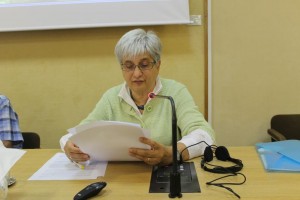 The secular Isabella d’Alessandro expressed their concern about the decline in staff, however, this is not a limit to the enthusiasm and desire to open up to the challenges posed by the mission. She recalled that the experience of weakness is an opportunity to collaborate with others, which invites to deepen our identity.
The secular Isabella d’Alessandro expressed their concern about the decline in staff, however, this is not a limit to the enthusiasm and desire to open up to the challenges posed by the mission. She recalled that the experience of weakness is an opportunity to collaborate with others, which invites to deepen our identity.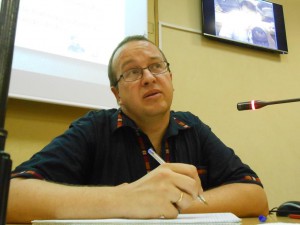 Finally, Alberto de la Portilla, coordinator of the CLM submitted its report to the Assembly. He explained the internal structure of the movement and the challenges made in the last intercontinental CLM assembly of Maia (2012). Expressing the desire to consolidate the already established groups and improve international coordination.
Finally, Alberto de la Portilla, coordinator of the CLM submitted its report to the Assembly. He explained the internal structure of the movement and the challenges made in the last intercontinental CLM assembly of Maia (2012). Expressing the desire to consolidate the already established groups and improve international coordination.



